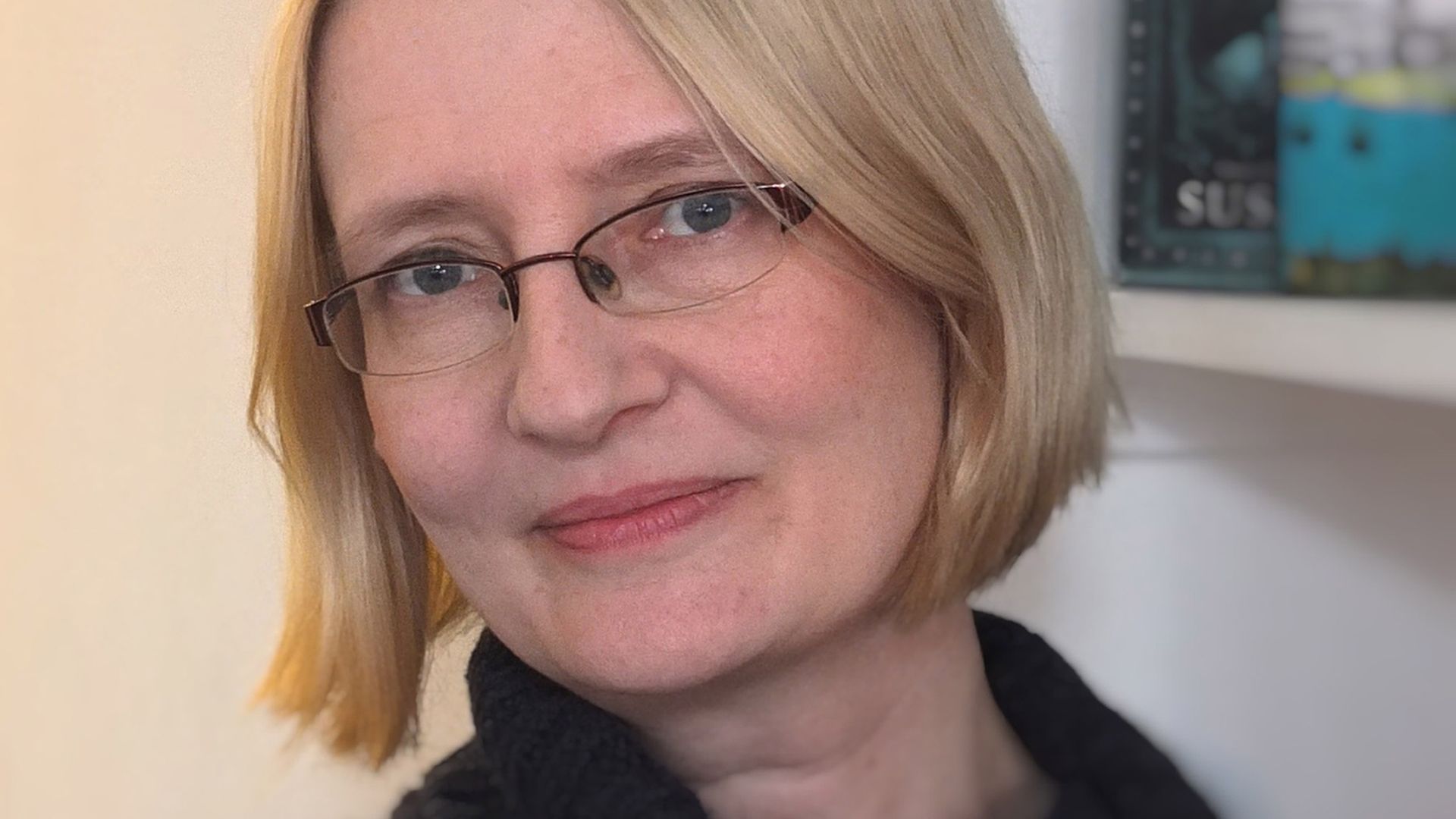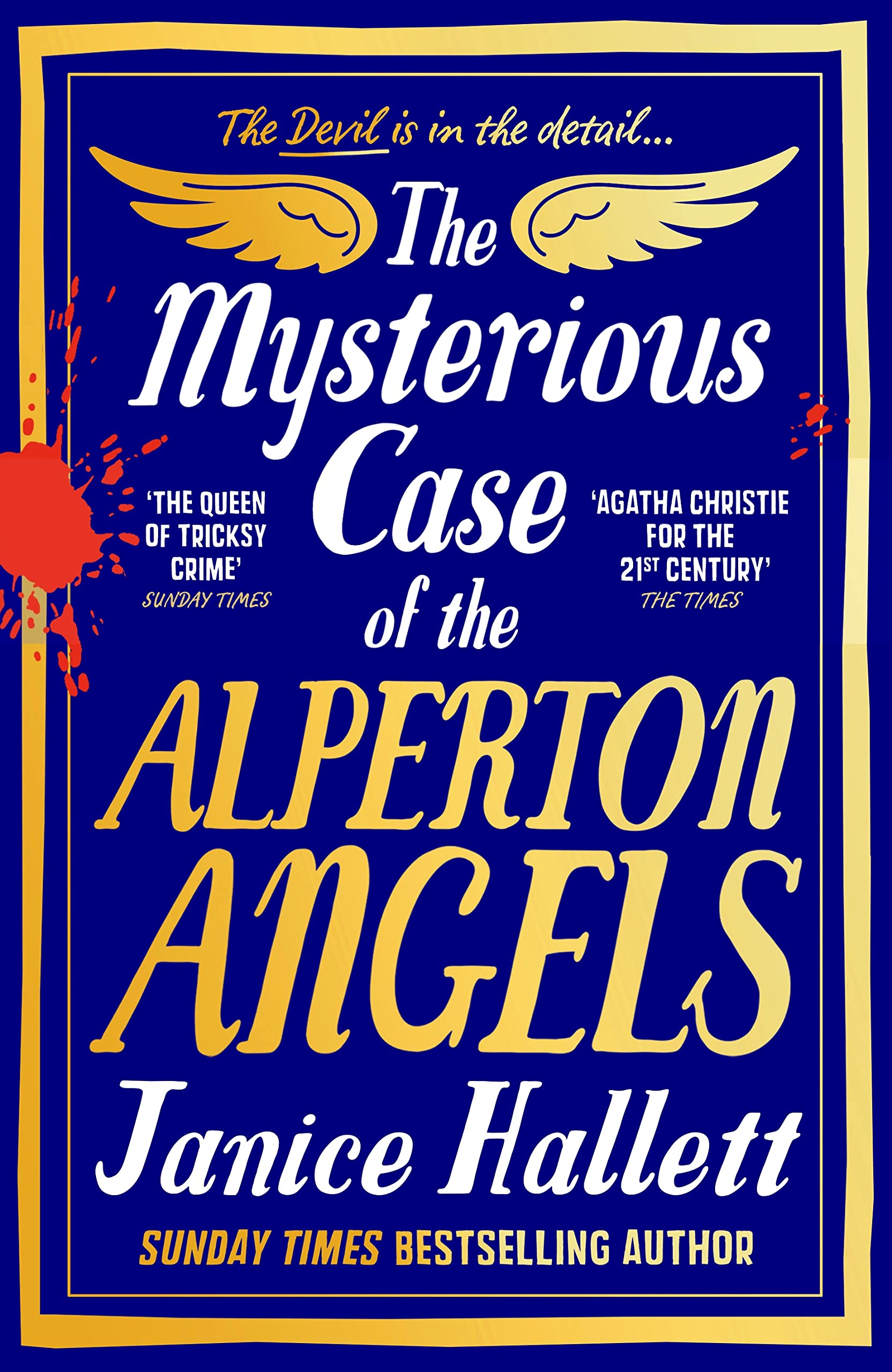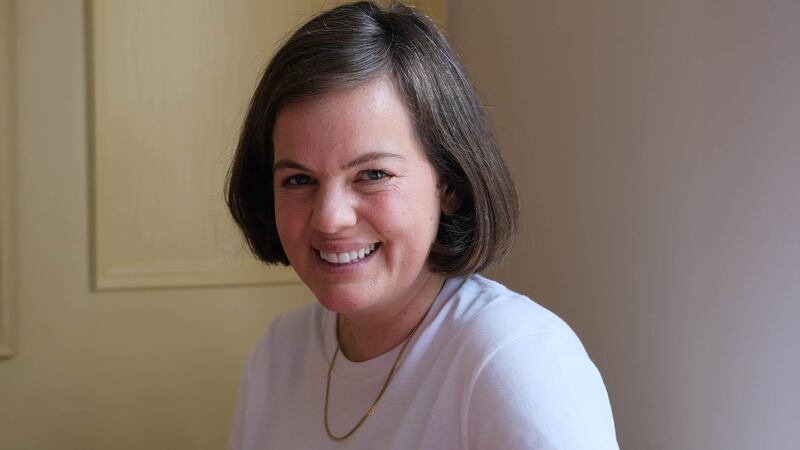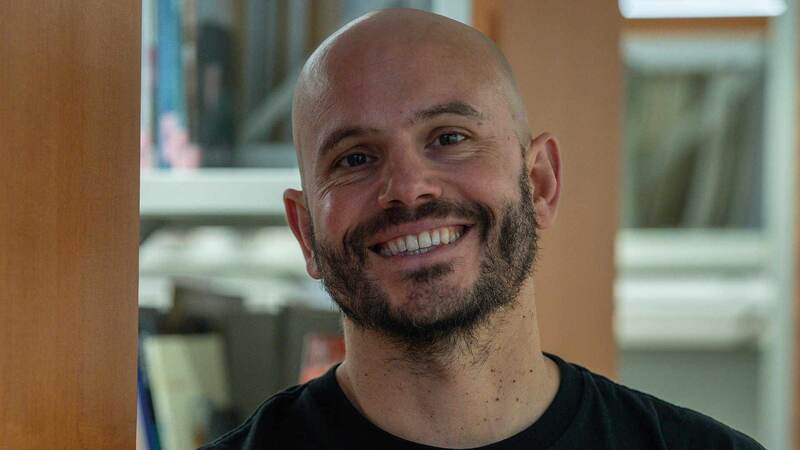You are viewing your 1 free article this month. Login to read more articles.
Janice Hallett discusses her third crime novel, character agency and life before The Appeal
 Madeleine Feeny
Madeleine FeenyNew Titles Fiction Previewer
I compile the monthly New Titles: Fiction. A freelance critic and editor, I previously held ...more
The third novel from Janice Hallett is another genre-bending mystery—and it looks set to follow its predecessors into the bestseller lists.

New Titles Fiction Previewer
I compile the monthly New Titles: Fiction. A freelance critic and editor, I previously held ...more
It’s hard to believe that only two years ago, the name Janice Hallett had never been heard in bookshops. Since The Appeal was published in January 2021, becoming one of the year’s biggest-selling débuts, Hallett has helped re-shape Britain’s crime fiction landscape, quickly establishing herself as one of our most innovative mystery authors.
Her epistolary “puzzle-box” style, which invites readers to play detective, proved catnip to a nation emerging from lockdown. The Appeal, about an amateur theatre group whose fundraiser for a sick child culminates in murder, scooped the CWA New Blood Dagger and was shortlisted for the British Book Awards’ Crime & Thriller Book of the Year and the Books Are My Bag Readers’ Choice. Waterstones’ top-selling thriller of the month ever, it was selected as one of its Books of the Year.
It was followed by The Twyford Code, another bestseller narrated through a series of recordings by an ex-convict who finds a secret code embedded in a famous children’s author’s work. Like its predecessor, it blends an intricate plot with playful humour and elaborate framing devices. In retrospect, Hallett’s treatment of crimes as intellectual puzzles looks like a logical progression in a market hungry for locked-room thrillers, yet she has somehow managed to revolutionise the genre. Warm and modest, when we speak over Zoom, she hopes her books resonate “because readers can see the story from all the different characters’ points of view”. But anyone angling for an insight into how she weaves her labyrinthine plots will be dismayed to learn that she doesn’t really know herself. “I let the characters dictate where things go, which means sometimes I go down blind alleys. I don’t get away with it—I do have to plot, but it’s reverse-engineering.”
In January she is back with her eagerly awaited third book, The Mysterious Case of the Alperton Angels, which pits two true-crime authors against each other in a race to unravel a cold case, the ritualistic 2003 murders of four men linked to a London cult. It’s another genre-busting, literary Rubik’s Cube exploring the dark art of deception, told through a multimedia patchwork of WhatsApp messages, audio recordings, newspaper headlines and excerpts from screenplays and novels. In true Hallett style, it opens by presenting readers with a dilemma: hide the evidence, or hand it in to the police.
I can read my own jokes back day after day and laugh every time, it’s really sad, but if it makes me laugh then hopefully it will others too
Where The Appeal had a large ensemble cast and The Twyford Code was told from one person’s perspective, Alperton Angels is propelled by the deep-rooted rivalry between the two lead characters, Amanda Bailey and Oliver Menzies. “They are both driven, creative individuals, so they are very similar, which helps them produce work and also helps them clash.” The story’s many geneses include Michelle McNamara’s non-fiction book I’ll Be Gone in the Dark and the HBO docuseries it inspired. “As a lifelong reader of true crime,” Hallett writes in her acknowledgements, “it struck me how, in the process of writing about a baffling case, McNamara became obsessed with solving it.”
Hallett has been credited alongside Richard Osman with spearheading the recent cosy crime revival. “I’m happy for people to consider The Appeal and The Twyford Code as cosy. I don’t think of them that way, there’s really dark stuff in both.” But she doesn’t expect the term to be applied to Alperton Angels. Nonetheless, fans will be relieved to hear its relative grittiness is leavened with Hallett’s trademark humour—one character provides a rich seam of comedy with her tone-deaf WhatsApp messages. You sense Hallett is enjoying herself. “I can read my own jokes back day after day and laugh every time, it’s really sad, but if it makes me laugh then hopefully it will others too.”
Psychological depth and authenticity are paramount: in addition to reading widely about cults, it was a priority to research how Amanda’s background growing up in care informed her character. Hallett interviewed women who had gone through the local care system and used quotes from them in the book. It’s set in Northolt, where the author was born, raised and still lives, because it’s “so nondescript that anything could happen”, and it illuminates the west London neighbourhood’s intersecting worlds of press, police and social services during the dying days of local print media. Her protagonists are ex-journalists who have been forced to apply their news-gathering skills elsewhere.
A former journalist herself, Hallett has done her fair share of career pivots—this isn’t the straightforward success story it seems. In her mid-thirties, she quit working in beauty retail trade magazines to do a screenwriting MA at Royal Holloway. With the director Carl Tibbetts, she then co-wrote a film, “Retreat”, a prescient lockdown thriller eventually made with Thandiwe Newton, Jamie Bell and Cillian Murphy, and released in 2011. She hoped her screenwriting career might take off, but it didn’t “and nor could Carl and I get any other films off the ground”.
Even having a film made hadn’t got me an agent. It was the most soul-destroying exercise ever
After years of rejection, it was her mentor Cameron Roach, then assistant head of drama at Sky, who suggested she try writing a novel to see if she could get it to screen that way. She gave herself a year to write the script she was working on as a book, and immediately something clicked. “I decided to write the story as emails going between the minor characters, and all these voices started ringing out. But if Cameron hadn’t made that suggestion, I think I’d still be writing scripts now.” She’d spent 10 years trying to find representation. “Even having a film made hadn’t got me an agent. It was the most soul-destroying exercise ever.” But after her screenwriting agent at Sheil Land passed the manuscript to her colleague, literary agent Gaia Banks, The Appeal was acquired in a two-book deal by Viper Books, Serpent’s Tail’s crime and mystery imprint, shortly before it launched in November 2019.
Her mentor’s advice paid off. Film rights to The Appeal have been sold to ABC, with Hallett adapting. She is certainly on a roll, with rights sold in 17 territories, and another four-book deal with Viper recently announced. She writes intensively every morning and attributes her brisk writing speed to her journalism background, which staves off deadline paralysis. In fact, she is accelerating: the first draft of The Appeal took one year, Twyford eight months and Alperton Angels seven months.
What makes her a publisher’s dream is the bank of ideas stored up from screenwriting. “The fact they didn’t get made as scripts turns out to be a good thing, because now I can develop them further as books.” Woven through Alperton Angels is a script adapted from one Hallett wrote in 2006, about a group of angels who are trying to save the Antichrist. “The twist was that they weren’t angels at all, it was a grooming ring. It was great to build on that story and make it bigger and more relevant to today.”
She can’t drop any clues about the next book, slated for 2024, except that it’s a “medium-sized ensemble piece”—she’s not done with her signature style yet. “Every novel is experimental, and I don’t ever really know whether it’s going to work.” But much as she’s “running scared” of the third-person narrative, she plans to give it a go at some point.
Although the stakes get higher with every book, the positives far outweigh the pressure. “Having a book published when I spent so long in the wilderness is just so wonderful. I want that fix again. It’s a cliché, but to know that people are reading what I’m writing is like a dream come true. Famous last words.”










